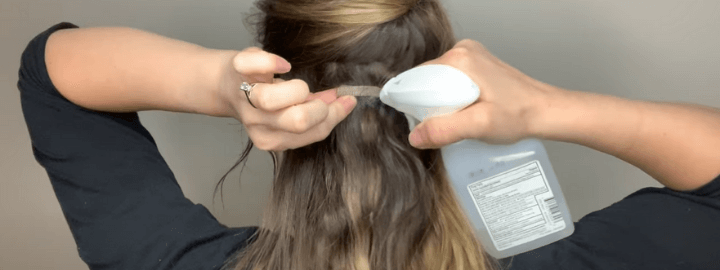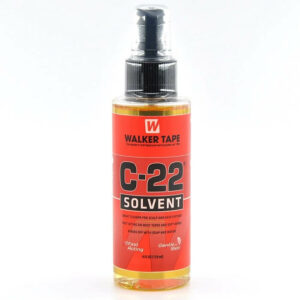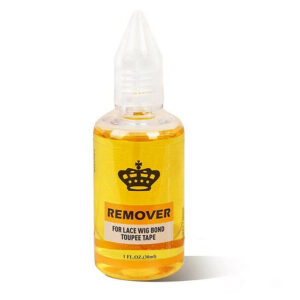When preparing for tape-in hair extensions installation appointments, likely, you don’t have the tape-ins removal in mind. Or possibly, you might be thinking you have to book another salon appointment for the same.
But, what if I tell you it’s not a must?
In fact, you can take out tape-in extensions at home by yourself. Save your time and salon costs!
Let’s check it now.
3 Proven Methods to Remove Tape-In Extensions
In this article, I’m going to reveal 3 ways to get tape-in extensions out. You will have an easy time taking them out after reading.
1. Remove Tape-In Extensions with Alcohol
The alcohol is better 90% isopropyl alcohol solution. If you go with the 70% or less type, it may not separate the tapes. [1]
Prefer video? Here you go:
STEP 1: Section and lift up your hair
Using your fingers, get to where tape-in extensions are. Move up the top hair covering the tape and clip tightly with hair clips so that it doesn’t interfere with the tape removal process. It should stay out of the way completely.
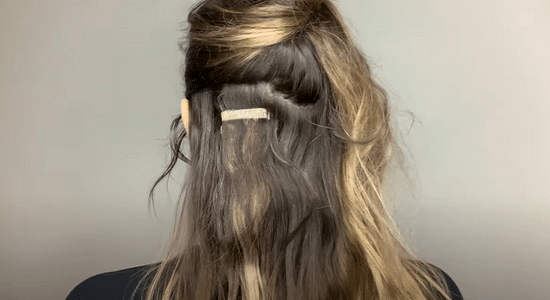
STEP 2: Spray alcohol to wet the tape
Take the spray bottle containing 91% rubbing alcohol, and squirt the alcohol on the top and bottom tapes.
Saturate the tape area with the alcohol to ensure it gets to every point beneath the tapes.
It should loosen the bond between the tape and the sandwiched hair by dissolving the adhesive.
And let it stay for 30 seconds to 1 minute, which is enough time for the tapes to detach.
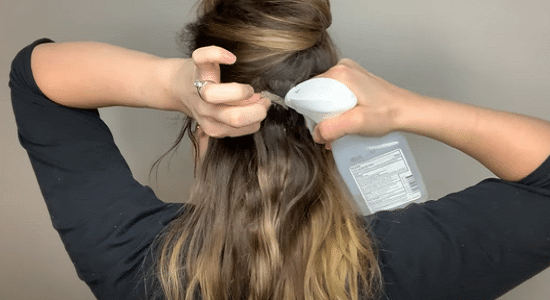
STEP 3: Peel the tape off your natural hair
The tapes will begin popping up at the edges. Massage the tapes lightly to see if they’re moving and ready for removal.
Finger-slide the tapes right out of your natural hair. If the tapes are still not unsticking, spray more alcohol.
After removal, stick the tapes of hair together and save them for re-use in the following application.
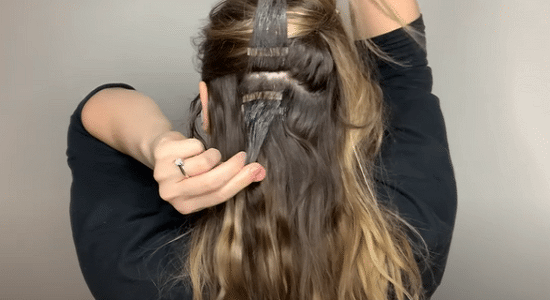
Note: There might be some ripped-off hair stuck in the tape. That hair sheds out naturally as your hair grows. It’s nothing in the realm of hair damage.
STEP 4: Remove the left residue
Apply some hair oil or serum to the hair section separated from the tapes.
Take your rat tail comb, and comb through that section gently. Combing is essential to remove tangles and partially the remnant residue.
Repeat steps (1) to (4) to remove the other tape-ins.
Ensure you remove one tape-in extension at a time. The tapes will re-bond in most hairpieces if you work on several at once.
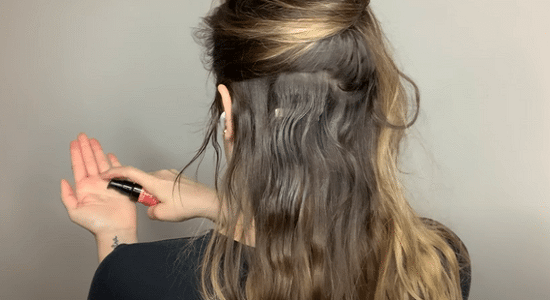
Note: Some hair may come out as you comb it. That’s not hair breakage but the hair that shed when you had extensions in your hair.
STEP 5: Cleanse and condition your hair
Run your fingers through your hair to ensure all tapes are out before cleansing the hair. At this point, you’ll feel your hair is less bulky.
Once they’re all out, wash your hair normally using shampoo. 2-3 rounds of washing would be more effective in clearing all the residue and the oil.
Then apply a deep conditioner to moisturise and leave your hair soft and frictionless.
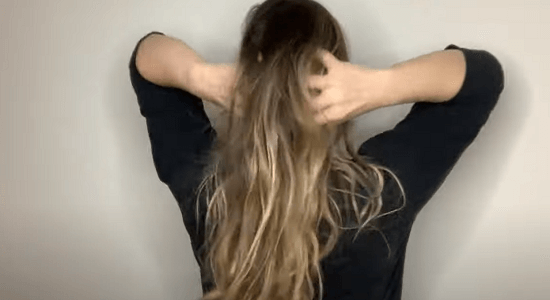
2. Remove Tape-In Extensions with Conditioner
If at all the tapes are proving harder to peel off, the hair conditioner is always the last product standing. Dampen the tape area heavily with a conditioner of your choice after washing your hair.
Wear your shower cap. And let it sit in for at least 20-30 minutes to penetrate and disintegrate the adhesion.
You can also use the conditioner on its own without applying other tape removers.
It will still work effectively but will require more time and patience than other types of tape removers.
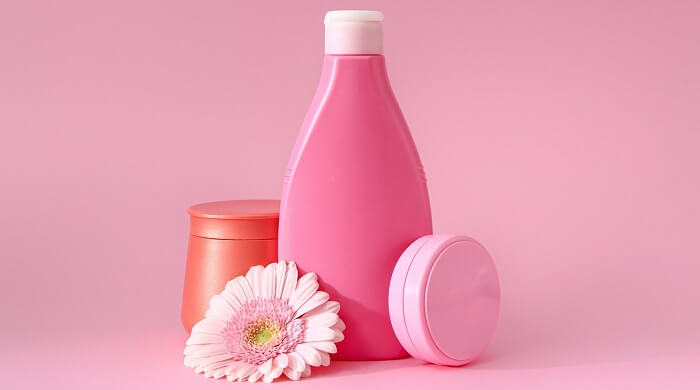
3. Remove Tape-In Extensions with Remover
If alcohol takes time to work out, you can opt for commercial tape removers. These tape removers are formulated specifically for tape removal and no other purpose.
And you apply them the same way you apply rubbing alcohol.
In fact, you should include it in your shopping list when purchasing tape-in extensions to have them beforehand.
Oil-based adhesive removers tend to break apart the tapes faster than alcohol-based removers.
However, alcohol-based removers have some oil content. This oil sticks as residue when the alcohol evaporates away instead of helping with tape detachment.
Generally, both types are safe on the hair and the scalp, posing no breakage and irritations.
So, let’s dive into the most common tape removers most hairstylists love to use.
Walker Tape C-22 Solvent
Walker Tape C-22 is a widely sought-after brand by tape-in extension fans. It’s amazed most women with its fast-acting powerful oil-based nature. It quickly soaks in and dissolves the adhesive.
Additionally, it releases a fantastic light citrus smell as it does its magic, making you enjoy the removal process. The smell resembles that of lemons.
It’s skin-friendly as well. Its ingredients are safe on your hair and skin. It gives the skin comfort you require while working on your tape-ins.
However, some reported it’s messy on the hair as it leaves a lot of oil residue. Plus, the cost of this product is unaffordably high.
Jooler Tape-in Extension Remover
Jooler Tape-in Extension Remover is both a professional and home-suitable product. With this formula, safety is the key concern. It contains no toxic chemicals or odor.
Its major ingredients are citrus oil and oil extracts. Therefore, it’s gentle on the scalp and ideal for sensitive scalps.
This tape remover attacks the bond between the tape tabs super fast. In 30-60 seconds, your tapes are ready to be peeled off. And even after taking them out, it does not frizz or dry your hair.
Ladies who’ve used it before claiming the tapes come off, but glue remains stuck in the hair. Moreover, it can’t clear all the residue from the hair.
FAQs about Removing Tape-in Extensions
Can you let tape-in extensions air dry?
Yes, girl. In fact, this is the safest and most natural way of drying your tape-in extensions. But before air drying, tap the hair strands with your clean, dry towel to absorb the excess dripping water so that the drying process can be faster.
Why do my tape-ins itch?
Your scalp will react back if you’re new to wearing tape-in extensions. The tension due to the additional weight on your hair might irritate the scalp. That happens until your scalp adjusts to the change completely.
The tape-ins may also itch as the discomfort is caused by excess oil accumulating on your scalp. And that’s a sign they are dirty and need thorough cleansing.
Can l use acetone to remove tape-in extensions?
Yes, you can use acetone. But it’s safer to use acetone-free nail polish to remove your tape-in extensions. Acetone has a drying effect on the hair.
If you use it, ensure that you wash the acetone residue out after removing the tape-in extensions. If possible, deep condition your hair to spring back to good shape.
To Sum up
Tape-in extension removal doesn’t have to be at a hairdresser. You can safely do it at home as long as you’re gentle on your hair with the right adhesive remover. Otherwise, if you find difficulty taking the tape-in extensions out, seek the help of a professional hairstylist at a salon.
Relate articles:
How Long Do Tape-in Extensions Last?


